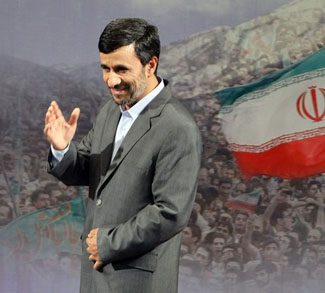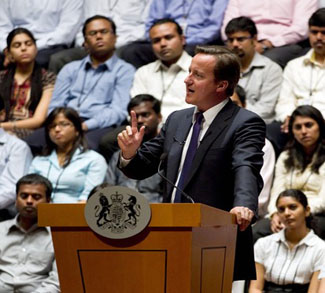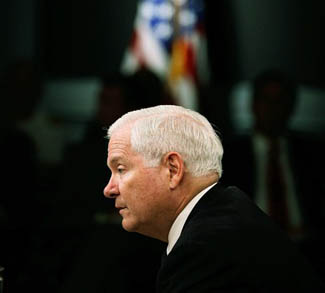When the Dubai International Financial Centre (DIFC) rejected a jurisdictional challenge from accounting giant KPMG in early November, the ruling didn’t just bring the practice of “forum shopping”—attempting to have a case heard in the most favorable of jurisdictions—into the spotlight. The decision also underlined the UAE’s broader efforts to earn a reputation for a credible and transparent judiciary, especially as it seeks to attract a broader range of global firms to do business in the Emirates.
This push is particularly relevant when it comes to businesses from new partner countries like Israel, who have been given fresh incentives to invest in Dubai following the Abraham Accords which normalized relations between the UAE and Israel last year. While a spate of new deals between Israel and Emirati firms are putting to rest fears the Accords might not produce an economic payoff, these and other foreign companies will expect a legal system that is up to the standards of other international financial hubs.
DIFC integral to Dubai’s future as a financial center
Dubai’s transformation in the five decades since the founding of the United Arab Emirates in 1971 – from quiet fishing village to oil boomtown and, ultimately, a metropolis of over 3 million people – has set the stage for a new chapter in its economic development. Having built its physical infrastructure with proceeds from oil, Dubai is now striving to break into the upper-most stratum of global financial hubs.
While the most recent edition of the Global Financial Centers Index (GFCI) validated Dubai’s efforts to date by ranking the emirate 18th in its Top 20, rising to the level of London, New York, and Singapore will be no small feat. To get there, the Emirate will need to expand on efforts to shed its reputation as a “capital of excess”, and emphasize both its impartiality and its attractiveness to foreign investors.
The Dubai International Financial Centre (DIFC), a special economic zone established in 2004, will have a particularly important role to play in proving the city is ready to take center stage in global financial markets. The DIFC, which already hosts hundreds of institutions from around the world, is designed to take advantage of Dubai’s central position at the junction of the Middle East, South Asia, and Africa.
A major focus of the DIFC leadership (headed up by CEO Arif Amiri and chief legal officer Jacques Visser, formerly of Dechert) revolves around establishing the economic zone’s reputation as a jurisdiction governed by the rule of fair and transparent law. With a separate legal system than the rest of the UAE and its own courts and arbitration facilities, the DIFC follows a body of laws and regulations largely based on English common law.
KPMG’s attempts to move its case to Sharia law-based local courts were a challenge to this distinction. In rejecting them, the DIFC went a long way towards confirming its own legitimacy.
Abraaj case carries far-reaching implications
The case in question involved KPMG’s regional arm, KPMG Lower Gulf, which is facing a $600 million lawsuit over its alleged negligence in failing to prevent massive, high-profile fraud as the auditor of defunct Dubai-based investment capital firm Abraaj.
Specifically, claimants have argued KPMG accountants “failed to maintain independence and an appropriate attitude of professional skepticism”—a lapse which may have had a material effect on KPMG’s failure to notice the fact Abraaj was essentially insolvent, while founder Arif Naqvi and his associates were allegedly siphoning hundreds of millions of dollars out of the fund.
The discovery of the suspected large-scale fraud at Abraaj ranks among the most notable financial scandals of the 21st century, and has left multiple global institutions embarrassed after they fell prey to Naqvi’s promises of lucrative financial returns from social projects. It has also shone a harsh spotlight on KPMG, whose close links to key Abraaj personnel may lend credence to accusations of a conflict of interest.
In order to give itself a better chance in court, KPMG tried to take advantage of the unique set-up of Dubai’s legal system, where the DIFC’s common law jurisdiction operates in parallel to local courts which administer justice based on Islamic Sharia. The practice is known colloquially as “forum shopping” and is often used by entities to move their case to a jurisdiction where they think they can secure a more favorable ruling.
Confirming the DIFC’s independence
While the attempt to have the case moved to an Islamic court sought to take advantage of the specificities of the Emirati legal system, the practice of “forum shopping” is neither new nor unique to Dubai. The manner in which this could be done in the UAE, however, represents a significant potential hurdle to Dubai’s aspirations of becoming a hub for international business.
Had KPMG succeeded in getting the case moved, global markets might have come to see Dubai’s dual-track legal system as a structural obstacle to conducting transparent, rules-based business in the emirate.
The DIFC effectively dispelled such concerns by denying KPMG’s request for transfer of jurisdiction, and the decision to maintain the DIFC legal system as a separate and independent court can be seen as another step taken by the Dubai authorities towards the first tier of international financial centers. With his ruling, presiding magistrate Justice Wayne Martin confirmed the legitimacy of the DIFC’s court to rule on cases under its jurisdiction, rather than a sideshow of the larger Emirati legal system.
With commercial activity between Israel and the UAE now intensifying in the wake of the Abraham Accords, the DIFC’s decision is important news for the new cohort of international firms now looking to do business in Dubai. Secure in the knowledge they will be treated fairly and transparently in case of a legal dispute, more potential investors will likely be reassured wading into the UAE for the first time.
The views expressed in this article are those of the authors alone and do not necessarily reflect those of Geopoliticalmonitor.com




